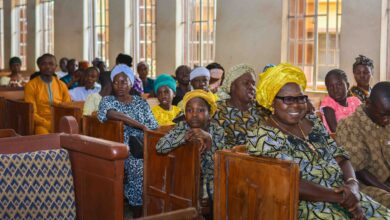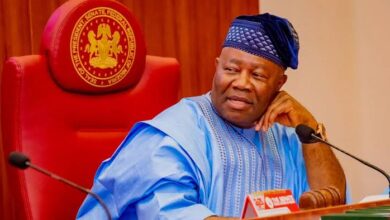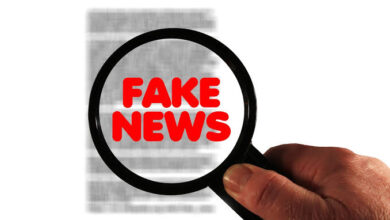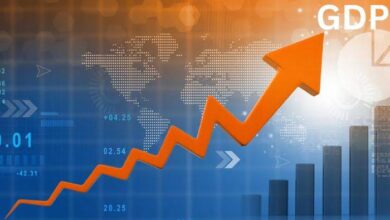By Mustapha Lawal
Elections are a vital aspect of democratic processes, as they allow electorates to have a say in who represents them and how they are governed. The year 2024, however, is not just another election year. It is perhaps the most consequential election year in recent history, with a record number of elections scheduled to take place.
In 2024, nearly half of the world’s countries will hold some form of election, whether it be national, regional, or state. Globally, more voters than ever in history will cast their ballots, as at least 64 countries (plus the European Union)—representing a combined population of about 49% of the world’s people—are scheduled to hold national elections. The results of these elections will have far-reaching consequences for many countries.
In this report, FactCheck Africa compiles information on upcoming general elections in 2024 across sovereign states particularly, Africa, a pivotal democratic process determining the leadership and legislative composition of each jurisdiction.
The frequency of elections varies according to country, constitutional provisions dictate the timing of elections in some countries, while others allow for government dissolution within specified limits. International standards gauge election fairness, considering factors like human rights violations, political campaign financing, and media bias. The National Democratic Institute maintains a comprehensive calendar of general elections.
This surge in elections is probably traceable due to some factors. First, there is a growing trend toward democratization around the world. Second, there is a growing awareness of the importance of elections. Third, there is a growing sense of urgency to address global challenges. Climate change, poverty, and inequality are all major problems that require global cooperation. Elections are seen as a way to elect leaders who are committed to solving these problems.
The Stakes For 2024’s Democratic Contests
The surge in elections in 2024 is a positive development. It shows that people around the world are increasingly demanding a say in how they are governed. Elections are a vital way to ensure that governments are responsive to the needs of their citizens.
However, the stakes for 2024’s democratic contests will be enormous — not just for the countries going to the polls, but for the world as a whole. The outcomes of these elections will bear significant consequences for years to come. While some elections might lack the assurance of being free and fair, they remain crucial to observe. The upcoming elections in various countries raise concerns beyond traditional political issues.
Taiwan’s January 13 polls heighten tensions with China, questioning the risk of conflict escalation.
In South Africa, will the African National Congress lose power, marking a significant shift in post-apartheid governance? The European Parliament faces potential challenges with the rise of far-right parties.
In the US, a Trump-Biden rematch prompts reflection on electoral dynamics. The mention of these global events emphasizes a broader issue—the perceived jeopardy of democracy itself.
With Bangladesh’s January 7 parliamentary elections already marked by opposition boycotts, and autocratic trends in India and Indonesia, 2024 poses a democracy paradox.
While citizens globally engage in the democratic process, the overall vulnerability of democracy looms large, as indicated by the Global State of Democracy report citing declines in democratic indicators across half of the world’s countries over the past five years.
As Maria Ressa notes, democracy’s fate may be determined by the end of 2024, marking a critical juncture for this fundamental political system. Despite these challenges, it’s crucial to acknowledge the relatively recent and extraordinary achievement that billions worldwide can actively participate in shaping their political landscape through the democratic process.
Africa’s Democracy-Defining Elections
Elections are poised to take place across more than a dozen African countries, including key members of continental peacekeeping and economic organizations, as well as nations with recent histories of military coups overturning democratically elected governments.
The repercussions of these elections extend beyond national boundaries, influencing the ongoing geopolitical struggle for influence on the continent. Western powers, notably the United States, are seeking to counterbalance Russian and Chinese investments and security alliances. The outcomes will not only shape the trajectory of democratization but also test the efficacy of multilateral organizations in safeguarding civilian rule and dissuading military takeovers.
In Senegal and South Africa, governing parties face formidable challenges from opposition groups, with these nations being influential players in the African Union and the Economic Community of West African States. The economic significance of South Africa’s election, particularly in the context of trade and investment ties with China and Russia within the BRICS alliance, adds an additional layer of complexity.
Meanwhile, Mali and Chad, both under military rule due to recent coups, have expressed intentions to hold presidential elections in 2024, potentially influencing other nations with similar histories to either return to democratic governance or face setbacks in the quest for civilian rule. The outcomes will have lasting implications for regional stability and the credibility of organizations like ECOWAS and the African Union in promoting democratic norms.
Artificial Intelligence (AI) Potential To Revolutionize Electoral Processes.
The advent of new technologies, particularly artificial intelligence (AI), holds great potential for revolutionizing electoral processes. However, this transformative power also introduces fresh challenges and risks. To uphold the principles of fairness and transparency in elections, it is imperative to establish new rules and regulations governing the application of AI in electoral contexts.
“2024 is poised to be an election year like no other, presenting unparalleled challenges to online platforms tasked with safeguarding the integrity of elections in the digital realm,” remarked Katie Harbath, a seasoned advisor to Republican campaigns on digital strategy and former Director of Public Policy at Facebook.
She emphasized that these platforms will face the daunting task of navigating numerous countries, each with distinct languages, cultures, and regulations. Moreover, the incorporation of new technologies such as Artificial Intelligence (AI) adds a layer of complexity, requiring the formulation of novel rules to address emerging challenges in the digital electoral landscape.
A major challenge posed by AI is the potential for voter fraud, encompassing activities like creating counterfeit voter registrations, voter impersonation, and manipulating election outcomes. Addressing this challenge requires the implementation of stringent security standards for AI-powered voter registration systems and the suitability of AI-driven voting machines to prevent manipulation.
Moreover, AI’s capacity for targeted messaging raises ethical concerns, as it can be employed for both legitimate campaigning and manipulative purposes. Regulations should demand transparency from campaigns regarding AI usage and prohibit the dissemination of false or misleading information through AI-targeted voter messaging.
In this report, FactCheck Africa takes a look at the stakes and potential of AI regarding the upcoming elections in 2024 across sovereign states in Africa. This follows the recent development and launch of its fact-checking AI-powered tool, My AI Factcheck which can play a crucial role in addressing misinformation and fake news, particularly concerning the 2024 elections.
FactCheck Africa’s mission is clear: to empower individuals in Africa with the tools to distinguish fact from fiction. To achieve this, Alamin Musa, who leads product development for the tool said they “harness a synergy of artificial intelligence and reputable news sources. Combining Google’s fact-checking API with the GPT-4 model, FactCheck Africa ensures its arsenal is robust and technologically advanced.”
With a robust combination of Google’s fact-checking API and the advanced GPT-4 model, the tool empowers users to verify claims swiftly. This technology becomes even more impactful in the context of global elections, where misinformation can have far-reaching consequences.
At the core of FactCheck Africa’s solution lies a user-friendly web application. Users simply input a claim, and the AI engine springs into action. It combs the internet and scours top-tier news outlets to scrutinize the claim’s validity. The result? A resolute stamp of truth or an honest acknowledgment of uncertainty when the AI cannot provide a definitive answer. Transparency, they believe, is a cornerstone of trustworthy fact-checking.
The tool’s user-friendly interface, multilingual support, and plans for gamified media literacy demonstrate a forward-looking approach, not only in combating fake news but also in promoting awareness and critical thinking, essential elements in the lead-up to significant electoral events, particularly in West Africa.






Hi, this is a comment.
To get started with moderating, editing, and deleting comments, please visit the Comments screen in the dashboard.